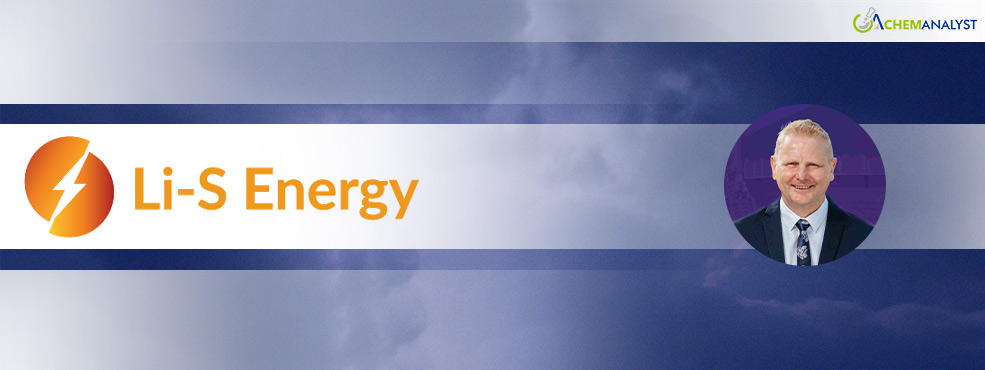Welcome To ChemAnalyst

Australian battery technology company Li-S Energy has announced a significant advancement in its lithium-sulphur battery technology, achieving an energy density close to 500 Wh per kilogram. Based in Queensland, Li-S Energy stated that its latest full-size 10 Ah semi-solid-state cells reached an impressive energy density of 498 Wh/kg during initial discharge and 456 Wh/kg after formation cycling, with ongoing testing indicating sustained performance.
This breakthrough utilizes Li-S Energy's third-generation semi-solid-state lithium-sulphur battery cell chemistry, which was first unveiled in April 2023. The company claims that its GEN3 technology offers more than double the gravimetric energy density and enhanced volumetric energy density when compared to conventional lithium-ion cells.
Dr. Steve Rowlands, Chief Technical Officer at Li-S Energy, remarked that these new results significantly improve upon earlier findings and signify an important milestone for lithium-sulphur cell chemistry. He pointed out that many research institutions and battery startups often test performance using small coin cells or pouch cells and report energy density results from the first discharge, which tends to be much higher than what is achievable in practical applications.
In contrast, Li-S Energy adopts a more realistic and commercially viable approach by testing full-size 10 Ah and 20 Ah pouch cells produced on its automated production line. This method provides a more accurate representation of actual cell performance when delivered to customers.
The near-500 Wh/kg energy density of Li-S Energy's battery technology brings the company closer to commercializing its innovations, especially in the rapidly expanding markets for drones, defence, and electric aviation, where minimizing weight is crucial. Li-S Energy is currently collaborating with V-TOL Aerospace, a drone developer based in Queensland, and Halocell Energy, a solar cell manufacturer in New South Wales, to develop drones powered by its lithium-sulphur batteries.
Dr. Lee Finniear, the CEO of Li-S Energy, emphasized that the increased energy density allows for lighter batteries, which further enhances the range, payload capacity, and operational duration for products developed by their partners. He described this development as a significant breakthrough for the emerging lithium-sulphur battery sector. Finniear noted that partners in the aerospace, drone, and defence industries have made it clear that they require the highest possible energy density along with dependable cell production and a scalable approach to meet growing demand.
Looking ahead, Li-S Energy intends to focus on improving cell reliability, production precision, and throughput at its 2 MWh production facility located in Victoria. Additionally, the company plans to work closely with its existing partners on developing battery management systems and battery pack designs. Finniear anticipates signing new partnerships in the coming months, with the latest performance results likely to generate substantial global interest and opportunities.
We use cookies to deliver the best possible experience on our website. To learn more, visit our Privacy Policy. By continuing to use this site or by closing this box, you consent to our use of cookies. More info.
